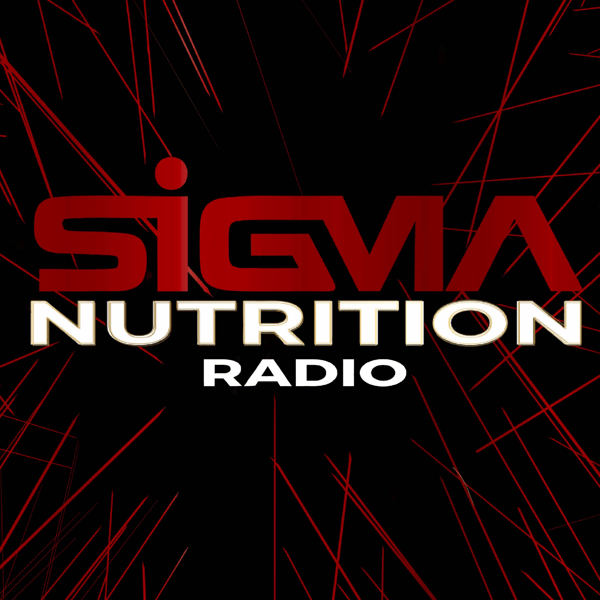#432: Bill Harris, PhD - Omega-3 Fatty Acids & Health
Sigma Nutrition Radio
Danny Lennon
4.8 • 626 Ratings
🗓️ 30 March 2022
⏱️ 59 minutes
🧾️ Download transcript
Summary
Omega-3 fatty acids have long been associated with various health outcomes. A type of omega-3 called alpha-linolenic acid (ALA) is found in various plant foods such as flax seeds or chia seeds. Other omega-3 fatty acids, eicosapentaenoic acid (EPA) and docosahexaenoic acid (DHA), are found typically in marine food sources such as oily fish (e.g. salmon, mackerel) and algae. And while higher intakes of such foods have shown benefit, there has been some confusion over the benefit of such nutrients due to some large omega-3 supplementation trials reporting null findings.
So what should we make of the current evidence base? Does supplementation lead to heart disease risk reduction or not? Do we need direct sources of EPA and DHA in the diet? Does ALA have unique benefits? What is an omega-3 index and why is it important?
In this episode, fatty acid expert Dr. Bill Harris dives into each of these questions and clarifies what the current evidence tells us about the effect of these fatty acids on our health.
Overview:
- 04:02 - Fatty acid definitions/subtypes
- 09:14 - Omega-3 status & the Omega-3 Index (O3I)
- 20:03 - Omega-3 supplementation trials for CVD
- 41:15 - DHA, brain health, cognition in later life, development, etc
- 49:45 - Should we be concerned about omega-6 fatty acids?
Show note available at: sigmanutrition.com/episode432/
Subscribe to Sigma Nutrition Premium here: sigmanutrition.com/premium/
Transcript
Click on a timestamp to play from that location
| 0:00.0 | Hello and welcome to Sigma Nutrition Radio. I'm your host, Danny Lennon, and this is episode |
| 0:19.1 | 432 of the podcast. You are very welcome. |
| 0:23.4 | Today we're going to be talking all about fatty acids, and in particular, most of our focus |
| 0:27.7 | is going to be on the omega-3 fatty acids, which of course, for a long time, have been associated |
| 0:32.4 | with various health outcomes. As you may know, and as we've noted on previous episodes of this podcast, |
| 0:38.7 | we can tend to focus in on a few different subtypes of these fatty acids. So we have |
| 0:44.0 | omega-3 fatty acid, alpha-linenic acid, or ALA, which is found in various plant foods, |
| 0:50.7 | such as chia seeds and flax seeds. And then we have other omega-3 fatty acids, such as |
| 0:56.0 | EPA and DHA, which are those typically found in marine food sources, such as oily fish. |
| 1:02.4 | And whilst we know that higher intakes of such foods have shown benefit, there has been |
| 1:08.8 | a lot of confusion or an interesting point of discussion within |
| 1:11.8 | nutrition research around omega-3 supplementation trials, where we look at the isolated |
| 1:17.9 | supplementation of omega-3. And we have either conflicting results or for some reason something |
| 1:24.6 | that doesn't reflect what we're seeing in some of the epidemiology. |
| 1:28.2 | And this is something we've touched on in a past episode of the podcast where we focused in |
| 1:32.8 | detail on some of those omega-3 supplementation trials. |
| 1:36.0 | And we'll bring up some of those again today with today's guest. |
| 1:40.3 | So the real questions we want to ask are like, how do we make sense of this current evidence base, |
| 1:46.6 | giving some of this conflict? Does supplementation indeed lead to heart disease risk reduction or not? |
| 1:53.3 | We can think about questions of do we need direct sources of EPA and DHA in the diet? |
| 1:58.2 | Does ALA have some unique benefits outside of those that we get from |
| 2:01.7 | EPA and DHA? What exactly is an omega-3 index? And why is that important? And in this episode, |
... |
Please login to see the full transcript.
Disclaimer: The podcast and artwork embedded on this page are from Danny Lennon, and are the property of its owner and not affiliated with or endorsed by Tapesearch.
Generated transcripts are the property of Danny Lennon and are distributed freely under the Fair Use doctrine. Transcripts generated by Tapesearch are not guaranteed to be accurate.
Copyright © Tapesearch 2025.

